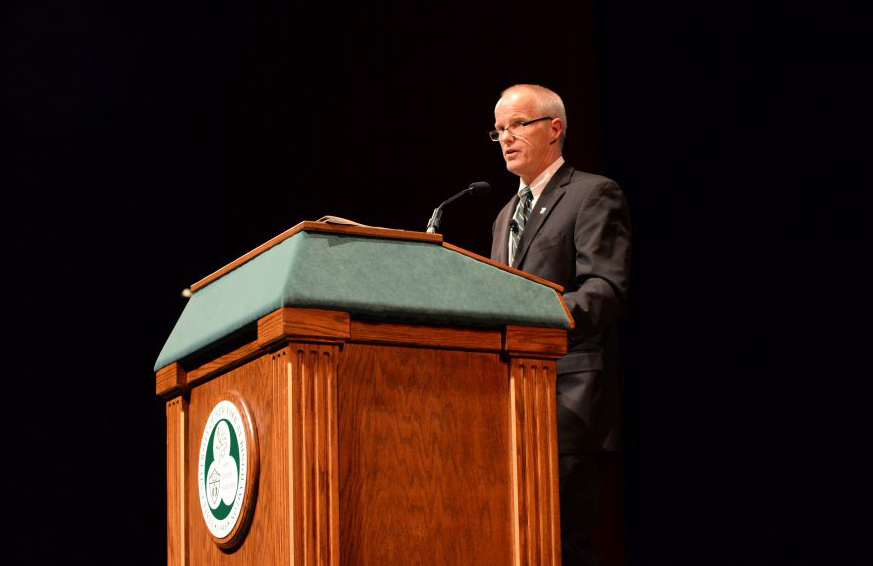
Following a semester with two student murders, Binghamton University has officially drafted a new safety initiative that is intended to address security concerns while incorporating feedback from the campus community.
The initiative features four different committees focusing on safety and security, communications, student engagement and counseling and student support. According to University President Harvey Stenger, the groups aim to encourage a collaborative effort between the administration and the student body.
“Each committee has focused on campus procedures and practices, gathered feedback and worked to implement many of the ideas put forth,” Stenger said in a statement. “We are committed to making Binghamton a safe and secure campus, and we recognize that this requires the engagement of the entire campus.”
The initiative also fulfills promises made by University administrators last semester, including the installation of a new campus notification system, an increase in dorm security cameras and three new positions at the University Counseling Center (UCC). Demands for increased safety measures came after the separate murders of two BU students, Haley Anderson and Joao Souza, in spring 2018.
One new feature the University has implemented is the Alertus Enhanced Notification System, which functions under the safety and security committee. After the death of Souza, many students criticized the administration’s delayed communication about the incident, and the new system will allow the University Police Dispatch Center to quickly send a generic message to the student body as soon as an incident occurs on campus.
In addition to the Alertus system, the University has installed 160 new security cameras in various residence halls.
JoAnn Navarro, head of the safety and security committee and vice president for operations, wrote in an email that although these changes will increase safety, the campus community should also be proactive to help keep the University safe.
“While all of these new and improved initiatives improve safety, everyone plays a role in safety on campus,” Navarro wrote. “So while we continue to implement new safety measures, we also still need to rely upon everyone in our University community to report concerns. If you see something, say something.”
Under the counseling and student support committee, the UCC has added three new counselor positions and a new health educator who will focus on mental health outreach and prevention education like bystander programming. The committee is also looking into ways to develop staff and faculty training in identifying distressed, disturbed or dangerous students.
“Everyone has a role in campus safety and we can all contribute to the optimal health of our campus community on individual and collective levels by practicing healthy habits and being sensitive to the needs of others,” wrote Johann Fiore-Conte, head of the counseling and student support committee and assistant vice president for health and wellness.
The student engagement committee, led by Randall Edouard, assistant vice president for student affairs and interim dean of students, will focus on meeting with resident assistants, residential directors and central staff to listen to concerns and discuss safety plans.
Greg Delviscio, head of the communications committee and associate vice president for communications and marketing, wrote in an email that his committee will be monitoring the new initiatives and improving their ability to send out messages faster.
“Everyone who works on campus takes safety very seriously,” Delviscio wrote. “When there are opportunities to improve, we must take those steps and then evaluate.”


